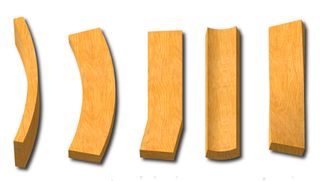Everyday gaming phrases that mean something very different to non-gamers
Mention an escort mission, and they'll think you're a dirty perv
An earlier version of this article was posted on this website in 2012. Also, Dave's now-ex girlfriend is still confused by game terminology. He tried his best.
Welcome to the warp zone

However open and accessible gaming becomes over the next generation, there will always be a division of it fenced off for the hardcore. Because simply, there are certain things that the casual and less well educated gamer will never understand. Having immersed ourselves in this medium for 30 years or so now, the gaming community has a language and lexicology completely alien to normal people. I'm not even talking about our garbled tech-talk regarding the optimisation of sub-pixel quadra-poly phase mapping.
No, much more confusing is the way in which we give perfectly normal words and phrases a completely different meaning. I'm talking about occurrences like the way I once confused my girlfriend (now ex-girlfriend, unrelated) by talking about energy bars, which she took to mean an edible cereal snack. And it's not just energy bars. It's those, and 30 more modes of verbal confoundment. And probably more than that, as we continue to expand this glossary of confusion.
Splash damage

Gamers know it refers to: The process by which kinetic energy dispersed on the peripery of an explosion causes knock-on damage to player characters or NPCs not caught in the epicentre.
Non-gamers think it means: When you leave a wet cup on the worktop for too long and it leaves a stain.
Deathmatch

Gamers know it refers to: The most basic, standard model for competetive multiplayer gameplay in a first or third-person shooter.
Non-gamers think it means: The point of origin in a lethal house fire, as identified by a trained forensic investigator.
Sign up to the GamesRadar+ Newsletter
Weekly digests, tales from the communities you love, and more
Cover system

Gamers know it refers to: A gameplay mechanic which allows the player character to lock position close to level architecture in order to shelter from enemy gunfire and explosives.
Non-gamers think it means: A tarpaulin.
Game mechanic

Gamers know it refers to: A core gameplay system or control input inherent to the workings of a particular video game.
Non-gamers think it means: A really enthusiastic fixer of motorised vehicles.
God mode

Gamers know it refers to: A cheat or debug status which allows the player character to become invincible.
Non-gamers think it means: The state of a person who has recently discovered religion. eg. "Jeff used to swear like a navvy until he went into God mode"
Graphic adventure

Gamers know it refers to: A puzzle-driven narrative game, usually utilising a text-input or point-and-click interface.
Non-gamers think it means: An unexpected sexy weekend.
Hit point

Gamers know it refers to: The units used to measure a player character's relative state of health or vitality.
Non-gamers think it means: The point of impact in a bludgeoning murder, as identified by a trained forensic investigator.
Ludonarrative

Gamers know it refers to: The elements of video game storytelling that are controlled or generated by the player's actions, contrasting with the concrete storytelling aspects that are prescribed by the developers.
Non-gamers think it means: The sub-plots of the film Labyrinth which relate to the benevolent ogre, Ludo.
Energy bar

Gamers know it refers to: A graphical indicator of the in-game avatars current state of health, shielding or other analogue for general vitality.
Non-gamers think it means: A consumable snack comprising cereal and other high-energy foods.
Most Popular




